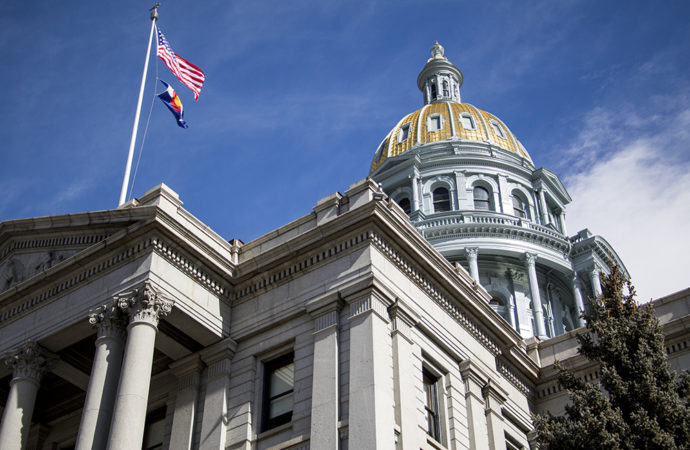The introduction to our mini-series on the Colorado Green New Deal
In America’s two-party system, when both legislative chambers and the executive branch are controlled by one party, the minority’s opinions are, or in the very least seem like nothing more than an inconvenience to the majority.
Need proof? Just ask Colorado’s Republican residents and lawmakers.
The Democrats regained control of the Senate and retained control of the House and Governor’s office in the last election. It’s their first legislative session with unilateral authority since 2014, and they’re happily pushing an environmental agenda the Republican-held Senate had stopped for four legislative sessions.
In an opinion editorial piece for the Washington Examiner, Kelly Sloan urged people to look at Colorado if they’re curious as to how the Green New Deal might play out. Sloan astutely observed that the Democrats have been “busy tossing every progressive idea they ever had, all killed in previous years by a Republican-led State Senate, into the legislative mill.”
This legislative session, much focus has been on the Democrat’s magnum opus, SB19-181 “Protect Public Welfare Oil and Gas Operations,” which will drastically alter the way Colorado regulates the oil and gas industry. However, it isn’t the only piece of legislation making up what we at the Energy and Environmental Policy Center are calling the Colorado Green New Deal (CGND).
Whether it’s Senate Bill 181 or Governor Polis’ executive order mandating the sales of electric vehicles, Democratic lawmakers have decided it’s time “encourage” people to live a certain way.
For instance, in an effort to motivate people to purchase electric vehicles, Representative Alex Valdez, Senator Brittany Pettersen, and Senator Faith Winter introduced HB19-1199 “Colorado Clean Pass Act.” If signed into law, beginning in July 2020, ten thousand EVs will be eligible for a program that gives those accepted access to standard HOV lanes for free and the high-occupancy toll lanes for half the usual price if they pay a $35 fee at registration. The amount of eligible EVs will increase year to year.
Another piece of legislation sends the message to Colorado residents and businesses that it’s time to either get on board with the agenda or get out. Once HB19-1231 “New Appliance Energy and Water Efficiency Standards” is adopted, companies will be unable to sell non-energy efficient appliances in Colorado. The standards will be phased in over three years. Some appliances will be covered beginning in 2020, some in 2021, and some in 2022. One can only hope the companies that manufacture energy and water efficient dishwashers are mindful of their customers and install a double-cycle setting that automatically re-washes the dishes.
The Republicans may retake the Senate in 2020 and become the ever-important check to the Democrats’ agenda once again. But until we know the results of the next election, personal choice and consumer preference remains an inconvenience.
In Colorado, the majority rules, or as the ancient Athenians said to the isle of Melos during the Peloponnesian War: “Right, as the world goes, is only in question between equals in power, while the strong do what they can and the weak suffer what they must.”
Colorado Green New Deal blog series:
Blog Post 2, Blog Post 3, Blog Post 4, Blog Post 5, Blog Post 6, Conclusion








